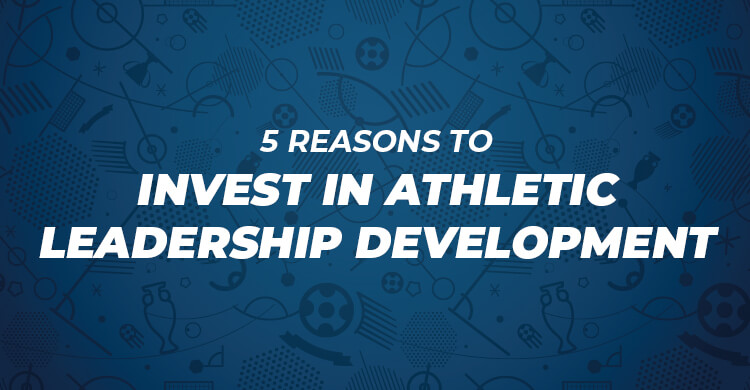The success and sustainability of high-quality extracurricular programs, whether in athletics or student activities, are directly tied to the capabilities and vision of the individuals who lead them. Athletic leadership—including the work of coaches, athletic directors, and club advisors—plays a crucial role not only in shaping individual programs but also in influencing the broader school culture.
Investing in athletic leaders’ professional development ensures they can foster positive environments, align programs with academic goals, and create transformative experiences for students. As highlighted in the new book Rally!, intentional leadership in athletics and activities has a cascading impact on academic outcomes, student well-being, and overall school success.
Aligning extracurriculars with school culture and values
Effective leaders in athletics and student activities understand that these programs are not isolated from broader school culture—they actively shape and reflect it. Leaders trained in cultural alignment are better equipped to ensure that athletes, club members, and advisors embody the school’s mission, vision, and values. Research indicates that effective athletic leadership and extracurricular programs aligned with school culture contribute to a sense of belonging, improved student behavior, and increased school pride. Training programs empower leaders to intentionally design activities and sports that prioritize sportsmanship, respect, creativity, and community engagement, reinforcing positive cultural norms.

Enhancing student outcomes through intentional leadership
Leaders play a pivotal role in fostering academic and personal success among participants. Professional development for leaders can focus on strategies to link participation in athletics and student activities with academic support systems, character development, and college readiness. Research shows that students involved in extracurriculars—be it sports, debate, or the arts—achieve higher GPAs, attend college at higher rates, and exhibit critical thinking skills. Well-trained coaches with athletic leadership skills understand how to promote academic accountability, establish mentorship programs, and ensure students gain valuable skills applicable in academics and life.
Promoting positive life skills
Whether on the court, stage, or in the classroom, extracurricular leaders deeply influence students’ social and emotional growth. Training in life skills, positive coaching, and inclusive leadership equips leaders to create environments where students develop emotional intelligence, resilience, and interpersonal skills. Students involved in extracurriculars experience reduced anxiety and depression, improved stress management, and greater teamwork skills. By balancing competition and collaboration with personal growth, great athletic leadership supports students through challenges and helps build the confidence they need to succeed in all areas of life.
Strengthening community engagement and school-community partnerships
Extracurricular programs, whether athletic or activity-based, serve as a school’s “front porch,” showcasing its culture to the broader community. Effective leaders understand their roles as ambassadors and foster relationships with families, community members, and local organizations. Training in community relations and event management helps leaders in athletics and student activities engage stakeholders, celebrate accomplishments, and strengthen school identity. Strong school-community partnerships can also lead to increased funding, better resources, and enhanced student opportunities, benefitting everyone involved.
Need more information on how—or why—to form strong partnerships with families and communities? Check out our blogs, “24 Surprising Benefits of Strong School-Family Partnerships” and “From “Involvement” to More Genuine School-Family Partnerships.”
Ensuring equity, inclusion, and access
To benefit all students, extracurricular leaders must be trained in equity and inclusion practices. Leaders trained to remove barriers—such as financial constraints or implicit bias—create environments where all students, regardless of background, can thrive. Whether guiding a robotics team, art club, or soccer program, a focus on equity ensures every student has access to the rich benefits of extracurricular participation.
Conclusion and help from the authors of Rally!
Investing in the professional development of both athletic and activity leaders is essential. Athletic leadership not only improves program quality but also enhances academic outcomes, emotional well-being, and lifelong skills among students. As Rally! illustrates, intentional leadership across all extracurricular domains builds school pride, fosters community trust, and ensures equity for every student. Follow authors Casey Reason and Brandon J. Larson to learn more about powerful training initiatives that drive school success.
Itching to learn more about the importance of effective leadership and how to improve and analyze leadership skills? Check out these hand-picked blogs for further reading:



